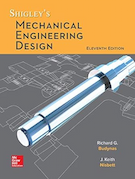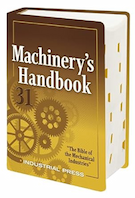Continuing Education Strategy for Career Growth
Continuing education is an essential aspect of any career, particularly for engineers who are expected to keep up with the latest advancements and technologies in their field. By engaging in ongoing learning opportunities, engineers can develop new skills, stay ahead of industry changes, and gain a competitive edge in their careers. In this article, we'll explore the strategies for success in continuing education for career growth.

1. Define your learning goals
The first step in any successful continuing education plan is to define your learning goals. This will help you to determine what courses or programs will best meet your needs and help you achieve your career aspirations. Some common goals for continuing education include staying up to date on industry developments, learning new skills and technologies, and preparing for certification exams.
2. Assess your current skills and knowledge
Before you invest time and money in continuing education, it's important to assess your current skills and knowledge. This will help you identify areas where you need to focus your learning efforts and ensure that you're getting the most out of your investment in continuing education.
3. Determine the best learning format
There are many options for continuing education, including online courses, in-person workshops, and certification programs. When choosing the best learning format, consider your learning style, schedule, and budget. Online courses are often the most flexible, allowing you to learn at your own pace and on your own schedule. In-person workshops are great for hands-on learning experiences and for networking opportunities, but they can be more expensive and may require travel. We offer a set of online engineering courses that may be completed within a short time frame and a low budget.
4. Make a plan and stick to it
Once you've defined your learning goals, assessed your current skills and knowledge, and determined the best learning format, it's time to make a plan. This may involve setting a schedule for studying, registering for courses or programs, and creating a budget for continuing education expenses. It's important to stick to your plan to ensure that you get the most out of your investment in continuing education.
5. Take advantage of resources and support
Continuing education is a big commitment, but there are many resources and support systems available to help you along the way. This can include online forums, study groups, tutors, and career coaches. Take advantage of these resources to help you stay motivated and on track.
6. Network with other professionals
Networking with other professionals in your field can be an invaluable part of your continuing education journey. This can help you stay connected to the industry, get advice and support from others who have been in your shoes, and even land new job opportunities. Look for opportunities to attend conferences, workshops, and other events where you can connect with other professionals.
7. Keep a record of your continuing education efforts
Maintaining a record of your continuing education efforts is important for a number of reasons. This includes being able to demonstrate your ongoing commitment to your career, to use your continuing education experiences as evidence in job interviews, and to show your achievements when applying for certifications or promotions. Keep a record of all courses, programs, and other learning experiences that you've completed, including the dates, location, and type of learning.
PDH Classroom offers a suite of online continuing education courses tailored to engineers. These courses can be used to fulfill PDH credit requirements for maintaining your PE license, or just as a part of staying ahead in your field.
Continuing education is a critical component of career growth for engineers. By following these strategies for success, you can make the most of your investment in continuing education, stay ahead in your career, and achieve your professional goals. Whether you're looking to gain new skills, prepare for certification exams, or stay current with industry changes, continuing education is an essential part of your career journey.




